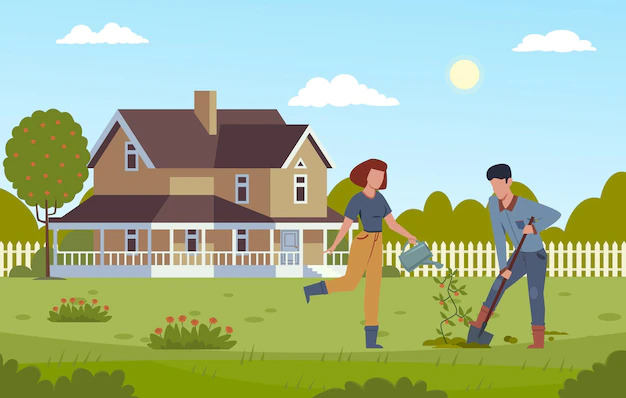Here’s how you can lower your risk of dementia, according to a new study
- Replies 4
One of the many terrifying things about dementia is how acquiring it, to this day, is a mystery. However, we do know that the illness mostly affects the older population.
With recent figures predicting that Australia’s older population (aged 85 and above) will grow by 140 per cent over the next 20 years, it’s important to be equipped with as much knowledge as we can about the dreaded condition that plagues many seniors.
‘Based on updated population estimates incorporating 2021 Census results, Australia’s population in all age groups is expected to grow, but the largest proportional growth is expected at the oldest ages.’ Dr Tom Wilson, a Principal Research Fellow at the University of Melbourne stated.
So what do we currently know about dementia? For starters, researchers found that amyloid plaques associated with Alzheimer’s disease can develop in the brains of people with no signs of dementia – but others with a similar plaque growth show an obvious decline in memory and thinking abilities.

A new study revealed how seniors can stave off dementia. Source: Kaiser Health News
Using data from a national health survey conducted in 1946, researchers from the University of London studied the cognitive reserves of over 1,000 participants at the age of 69.
Cognitive reserve refers to the brain’s resilience to damage or disease. This means that if you have a high cognitive reserve, your brain also has more potential to combat the symptoms of dementia or cope with head injuries.
The researchers analysed external factors that may impact each participant’s cognitive reserve, including specific genetic and lifestyle influences throughout their lives.
These included childhood cognition measured at 8 years old, education level at the age of 26, involvement in leisure activities at 43 years old, results of a reading test at age 53, and results of a cognitive exam at 69.
The researchers then compared the results to find out which, if any, of the factors affected the mental state of the participants at a late age.

The link between external factors and the condition. Source: TerraBella
They found that those with higher cognitive scores during their childhood and higher reading ability in later midlife led to a higher score on the cognitive exam taken at age 69. In addition, participants who pursued higher studies also scored higher than participants with no education beyond high school.
Those who engaged in at least six different leisure activities—such as gardening, volunteer work, learning a new language, or joining a club—also had higher scores than those who engaged in fewer activities. Lastly, participants with higher-skilled professions scored higher than participants with lower-skilled jobs.
Aside from external factors, the researchers also covered the role of the APOE gene, specifically the ‘APOE e4 allele’. This gene is also called a ‘risk-factor gene’ as it’s commonly associated with young-onset dementia. Possessing this gene increases the risk of developing Alzheimer’s disease as well.
While the researchers found that the gene was indeed present in those who had lower scores on the cognitive exam given at age 69, it did not affect those with higher scores and cognitive reserves that also possessed the gene.
This means that despite being predisposed to Alzheimer’s and other dementias, the presence of APOE e4 was insignificant to those who aced the exam.

High cognitive reserves can make the risk-factor gene insignificant. Source: Freepik
So, if you’ve been wondering whether or not it’s worth rekindling an old hobby or signing up for the new book club (or the Senior’s Discount Club, wink) you’ve heard about, this is the universe’s way of telling you to go for it.
Building up cognitive reserves by engaging in intellectually challenging activities and getting on top of your life’s mental, physical, and social aspects may help prevent or delay symptoms of dementia, according to the study. The more active your brain is throughout your lifetime, the better!
If you, or someone you love, has dementia, the National Dementia Hotline is available 24/7 to help and empower those struggling with the condition. You may call 1800 100 500 to contact them or click here to be directed to their website.
What are your thoughts on this new study? Better yet, what are some of the daily activities that you engage in to keep your brain active? Share them with us in the comments!
Learn more about cognitive reserve by watching the video below:
Source: Sabinna Brennan
With recent figures predicting that Australia’s older population (aged 85 and above) will grow by 140 per cent over the next 20 years, it’s important to be equipped with as much knowledge as we can about the dreaded condition that plagues many seniors.
‘Based on updated population estimates incorporating 2021 Census results, Australia’s population in all age groups is expected to grow, but the largest proportional growth is expected at the oldest ages.’ Dr Tom Wilson, a Principal Research Fellow at the University of Melbourne stated.
So what do we currently know about dementia? For starters, researchers found that amyloid plaques associated with Alzheimer’s disease can develop in the brains of people with no signs of dementia – but others with a similar plaque growth show an obvious decline in memory and thinking abilities.
A new study revealed how seniors can stave off dementia. Source: Kaiser Health News
Using data from a national health survey conducted in 1946, researchers from the University of London studied the cognitive reserves of over 1,000 participants at the age of 69.
Cognitive reserve refers to the brain’s resilience to damage or disease. This means that if you have a high cognitive reserve, your brain also has more potential to combat the symptoms of dementia or cope with head injuries.
The researchers analysed external factors that may impact each participant’s cognitive reserve, including specific genetic and lifestyle influences throughout their lives.
These included childhood cognition measured at 8 years old, education level at the age of 26, involvement in leisure activities at 43 years old, results of a reading test at age 53, and results of a cognitive exam at 69.
The researchers then compared the results to find out which, if any, of the factors affected the mental state of the participants at a late age.
The link between external factors and the condition. Source: TerraBella
They found that those with higher cognitive scores during their childhood and higher reading ability in later midlife led to a higher score on the cognitive exam taken at age 69. In addition, participants who pursued higher studies also scored higher than participants with no education beyond high school.
Those who engaged in at least six different leisure activities—such as gardening, volunteer work, learning a new language, or joining a club—also had higher scores than those who engaged in fewer activities. Lastly, participants with higher-skilled professions scored higher than participants with lower-skilled jobs.
Aside from external factors, the researchers also covered the role of the APOE gene, specifically the ‘APOE e4 allele’. This gene is also called a ‘risk-factor gene’ as it’s commonly associated with young-onset dementia. Possessing this gene increases the risk of developing Alzheimer’s disease as well.
While the researchers found that the gene was indeed present in those who had lower scores on the cognitive exam given at age 69, it did not affect those with higher scores and cognitive reserves that also possessed the gene.
This means that despite being predisposed to Alzheimer’s and other dementias, the presence of APOE e4 was insignificant to those who aced the exam.
High cognitive reserves can make the risk-factor gene insignificant. Source: Freepik
So, if you’ve been wondering whether or not it’s worth rekindling an old hobby or signing up for the new book club (or the Senior’s Discount Club, wink) you’ve heard about, this is the universe’s way of telling you to go for it.
Building up cognitive reserves by engaging in intellectually challenging activities and getting on top of your life’s mental, physical, and social aspects may help prevent or delay symptoms of dementia, according to the study. The more active your brain is throughout your lifetime, the better!
If you, or someone you love, has dementia, the National Dementia Hotline is available 24/7 to help and empower those struggling with the condition. You may call 1800 100 500 to contact them or click here to be directed to their website.
What are your thoughts on this new study? Better yet, what are some of the daily activities that you engage in to keep your brain active? Share them with us in the comments!
Learn more about cognitive reserve by watching the video below:
Source: Sabinna Brennan







